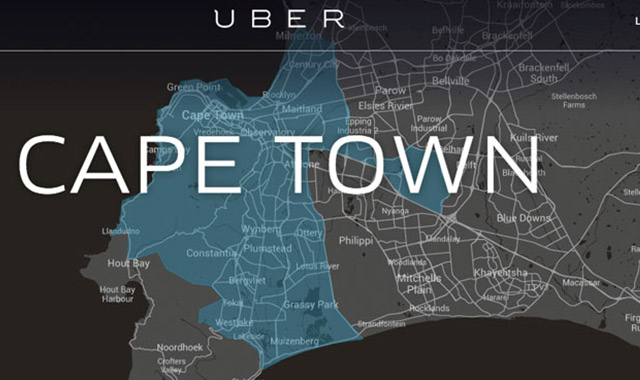
The Western Cape Metered Taxi Council (WCMTC) has been dissolved amid a raging debate over Uber, but the council’s chairman is standing his ground.
The WCMTC, which had over a thousand members, was formed in 2011 as a representative body for the meter taxi industry.
The Western Cape government has also sponsored office space and telephone lines for the WCMTC in the Cape Town CBD.
But disarray hit the WCMTC amid allegations that it almost stopped having meetings and that its former chairman, Aldino Muller, has been working with Uber.
Subsequently, the Western Cape’s transport & public works department has confirmed that the WCMTC has been dissolved.
“The WCMTC was dissolved after the mass resignation of executive members and a reported vote of no confidence in the chairman,” said Byron la Hoe, spokesman for the transport & public works department.
“The department … has been furnished with the names of an interim committee of metered taxi operators, who, together with the department, will oversee the review of the constitution of the council,” said La Hoe.
It is understood that a group, which used to be part of the WCMTC, has approached local government officials to start a new body dubbed the Cape Meter Taxi Association.
“We have to start afresh for a more powerful organisation,” said David Drummond, spokesman for meter taxi drivers in the province.
Drummond, who used to be vice chairman of the WCMTC, said the meter taxi driver industry in that province was never happy with the now dissolved council.
While Drummond said the “the chairman issue is not even the main issue for the council closing”, he said Muller’s approach to the role was problematic.
“Encouraging someone from your own organisation to join Uber is just wrong,” Drummond said about the allegations concerning Muller.
“We’re trying to get somewhere where our operating licences are worth something.”
Responding to these claims, Muller said he has been open to partnerships with Internet ride sharing app Uber but that he didn’t push this with members.
“I didn’t go to our members and say ‘let’s join Uber’,” Muller said.
“If they (Uber) come in as a partner from a technology perspective — that is basically looking at marketing, putting bums on the seats of our members — why should I refuse that because that is empowerment of our people.
“What I’m saying is that I haven’t been lobbying with anybody — I’ve been speaking to Uber,” said Muller.
He said the WCMTC on 29 June moved out of its office, which is supplied by the Western Cape provincial government, because of “threats” by angry meter taxi drivers.
Last week, about 200 meter taxi drivers marched to the provincial government’s offices to demand answers on why Uber is operating in the City of Cape Town even though the majority of the Internet service’s driver partners don’t have legal permits.
But Muller said by phone that, as far as he is concerned, the WCMTC is technically still operational and that he refuses to resign.
Part of Muller’s reason for refusing to resign is that he said the WCMTC had made advances in setting up its own Internet app for the industry as well.
“I have to basically do the right thing, and the right thing at the moment is not to resign,” Muller said by phone on Monday.
He further said that the WCMTC can only be dissolved once an election is held. Elections are held every four years and the last election of the council was held in 2014.
“Until such time, the organisation is maybe not recognised but I have an obligation to my constituency — and that is the Western Cape — and I have to do the right thing and do it in a proper way,” he said.
Muller further said that a split in the WCMTC happened mainly in the Cape Town CBD and that this group doesn’t represent the whole Western Cape.
“At the end of the day, a disgruntled group said, no you guys must dissolve, you (Western Cape government) must disown the WCMTC and they conceded to that. Why?” Muller said.
Muller further said that the disgruntled group could be anti-Uber and that, under him, the WCMTC attempted to avoid resorting to violence with regard to dealing with meter taxis’ frustrations with Uber.
In the meantime, Muller said a solution needs to be found for the metered taxi industry in South Africa which he says is in “disarray”.
“Uber has come along and everyone knows that they’ve taken the market by storm. So, you cannot ignore them,” he said. “If government is negotiating with them, who are we? We are sitting in the middle. So, we can fight, we can argue, but at the end of the day we lose our businesses.”




